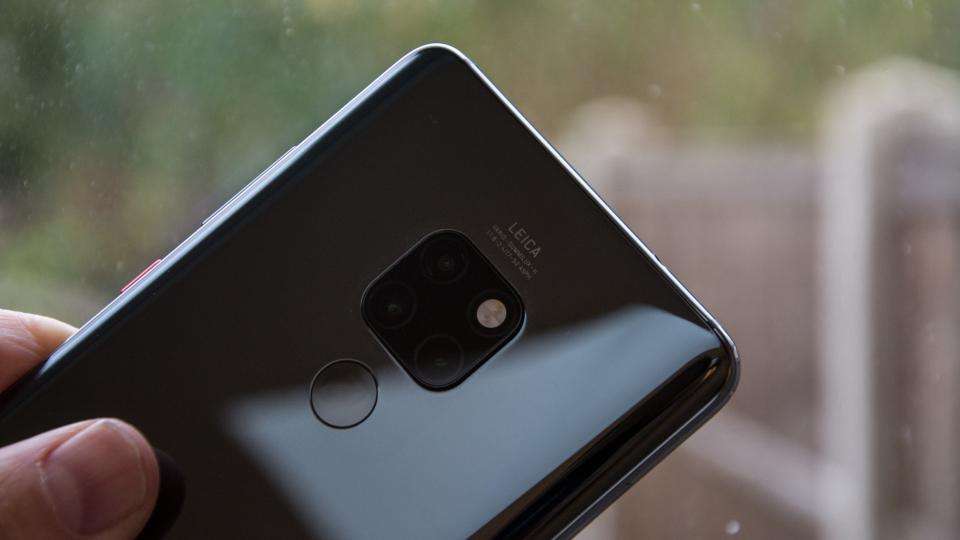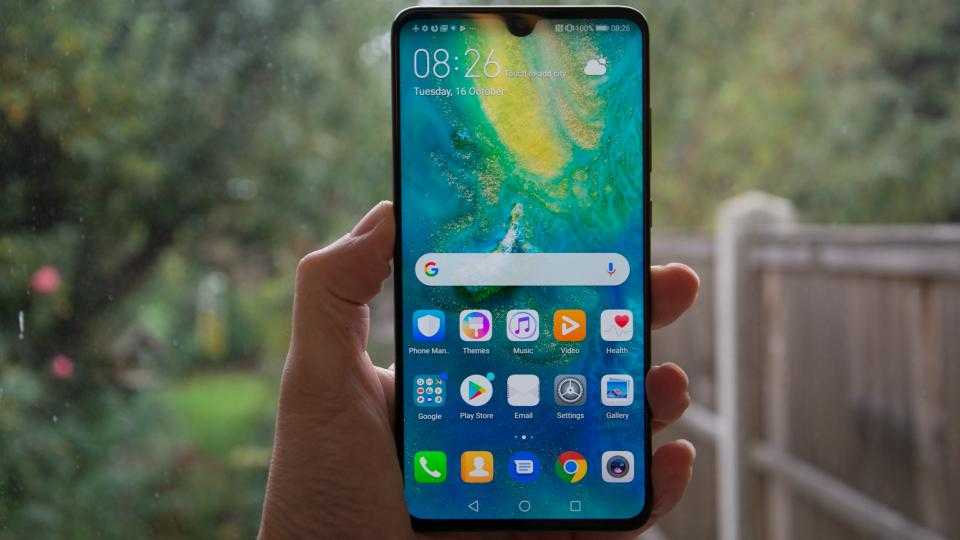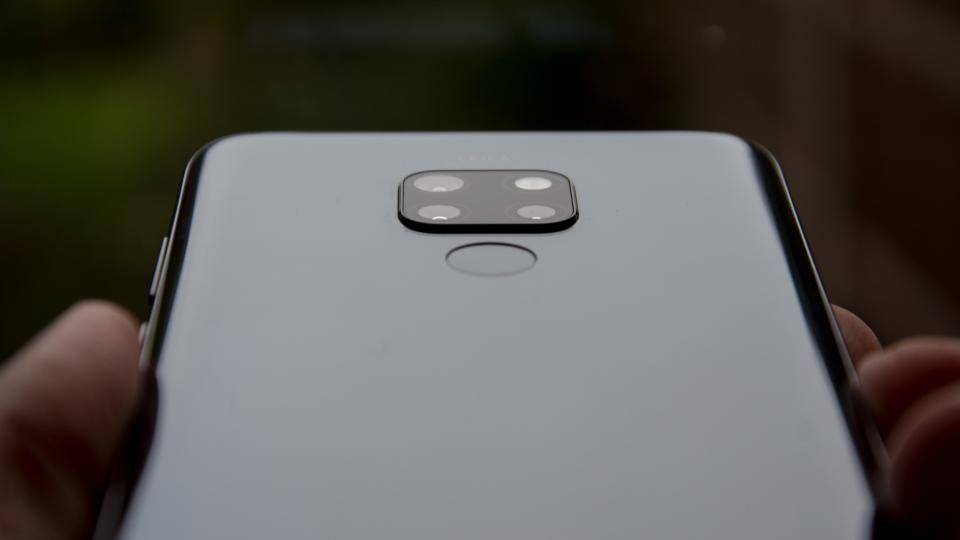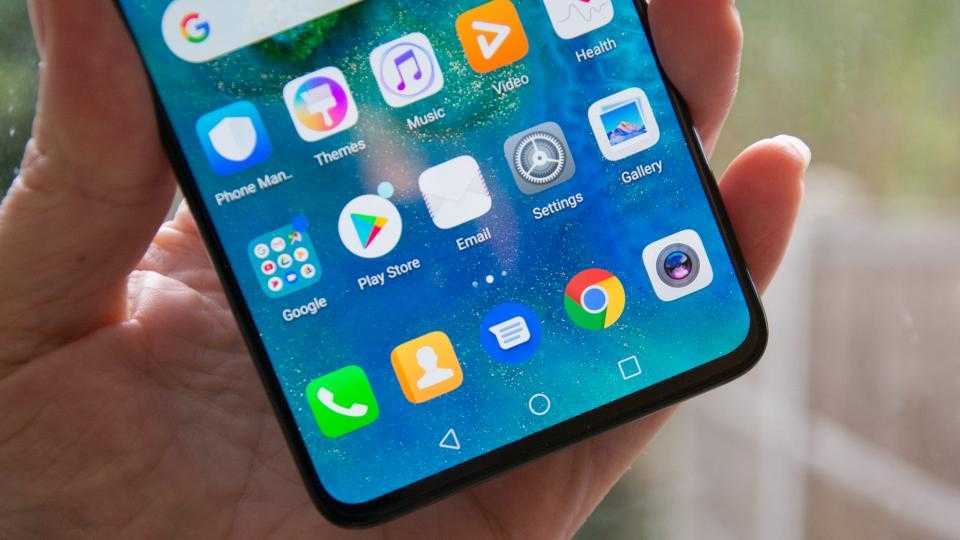In light of the recent revocation of Huawei's Android licence by the US Government, the Chinese firm's future is uncertain. Now, we love a good Huawei handset as much as the next tech publication, and we're certain that the quality of hardware will remain as high as ever going forward. Given the circumstances, however, we would not advise purchasing a new model at this time.
Since the ban, however, Huawei has revealed that it will be bringing the Android Q update to the Huawei Mate 20, in addition to "popular current devices", despite the ongoing trade ban. There's no word yet on when this update might drop, but you can see the full list of Huawei phones that are set to receive the Android Q upgrade in our dedicated Huawei ban article .
Our original Huawei Mate 20 article continues below
Huawei Mate 20 review
Huawei is concentrating on the sleeker, more technologically accomplished Mate 20 Pro at its big October launch event in London, but its sister phone, the Huawei Mate 20, isn’t far behind.
Alas, it won’t be available to buy in the UK, but slightly more modest specifications and a larger screen might tempt you to import the phone, especially as it’s likely you’ll be able to buy one for a slightly lower price.
Huawei Mate 20: What you need to know
The Huawei Mate 20 is, essentially, a slightly more basic version of the Mate 20 Pro. Exactly as you’d expect given the name.
Both are Android phones running Android 9 Pie with Huawei’s EMUI 9 launcher on top. Both look very similar and both have a Leica-branded triple camera array on the rear, combining an ultra wide-angle shooter with regular and telephoto cameras.

Huawei Mate 20: Specifications, price and release date
6.53in, 1,080 x 2,244, 18.7:9 RGBW IPS display
2.6GHz octa-core Kirin 980 processor
4GB or 6GB RAM
64GB or 128GB storage, expandable by up to 256GB via nano memory card
Triple Leica camera:
Android 9 Pie with EMUI 9
Colours: Green, blue, “Twilight”, “Pink Gold”, black
Price: €799 (£702)
Release date: 16 October
Huawei Mate 20: Key features and first impressions
Look closely at the details and the photos in this hands-on piece, however, and you’ll see quite a few points of difference. The most obvious is the display, which is larger at 6.53in, uses different panel technology (IPS, RGBW) and has a smaller, teardrop-style notch at the top. If you hate big notches, this might be the phone for you.
The Mate 20 comes in exactly the same colours as the Pro – green, blue, two-tone “Twilight”, “Pink gold” and black – and the green and blue versions have the same diagonal etched patterning on the rear. It’s a great-looking phone but it’s not quite as sleek as the Pro as its screen is flat right out to the edges, while the Mate 20 Pro is curved on the left and right sides – just like the Samsung Galaxy S9 .
The biggest difference between the two phones is in the camera setup. Although the Mate 20 is stamped with Leica name and has three cameras at the back – arranged in the same, neat square with the flash in the top left corner – the specifications are very different.

Instead of a 40-megapixel, f/1.8 primary camera, the Mate 20 has a 12-megapixel, f/1.7 shooter. Its ultra-wide-angle 17mm camera is a 16-megapixel f/2.2 effort (compared with the Mate 20 Pro’s 20-megapixel, f/2.2 effort) and the telephoto camera offers only a 2x optical zoom compared with the Pro’s 3x, although both telephoto cameras have a resolution of 8 megapixels, an aperture of f/2.4 and optical image stabilisation (OIS).
Confused? I’d be surprised if you weren’t. The long and short of it, though, is that the Mate 20 Pro has the better-specified camera with a slightly wider angle view (16mm equivalent) and a significantly better telephoto shooter. If you’re keen on smartphone photography, the Pro is the Mate 20 to buy.

Don’t discount the Mate 20 entirely, though. It still has one of the most flexible camera setups in the business and benefits from Huawei’s clever AI tech, which can detect objects or scene types and adjust its settings accordingly. Huawei’s new dual NPU (neural processing unit) comes into play here, too, and allows the AI camera to detect scenes and objects on the fly as you’re shooting video, as well as in stills photography.
Elsewhere, it’s still 80% the same phone as the Huawei Mate 20 Pro. It should put in largely the same performance results and it has the same new EMUI features, including a new wireless version of Huawei’s excellent desktop mode.

This allows you to connect the phone to any Miracast-enabled display, hook up a Bluetooth mouse and keyboard and use the phone to power a windowed desktop without needing to find a spare HDMI cable and free video input.
Huawei Mate 20: Early verdict
Huawei is focussing on the Mate 20 Pro for good reasons – it’s the more attractive phone and has a better all-round specification, including the new Leica 40-megapixel triple camera setup. And it’s easy to see why it’s taken the decision not to launch the Mate 20 officially into the UK market.
But for canny internet buyers who may not be able to afford the Mate 20 Pro, the Mate 20 looks like it could provide a tempting, more affordable alternative. All we need now is for Huawei to change its mind and launch it officially in the UK.

